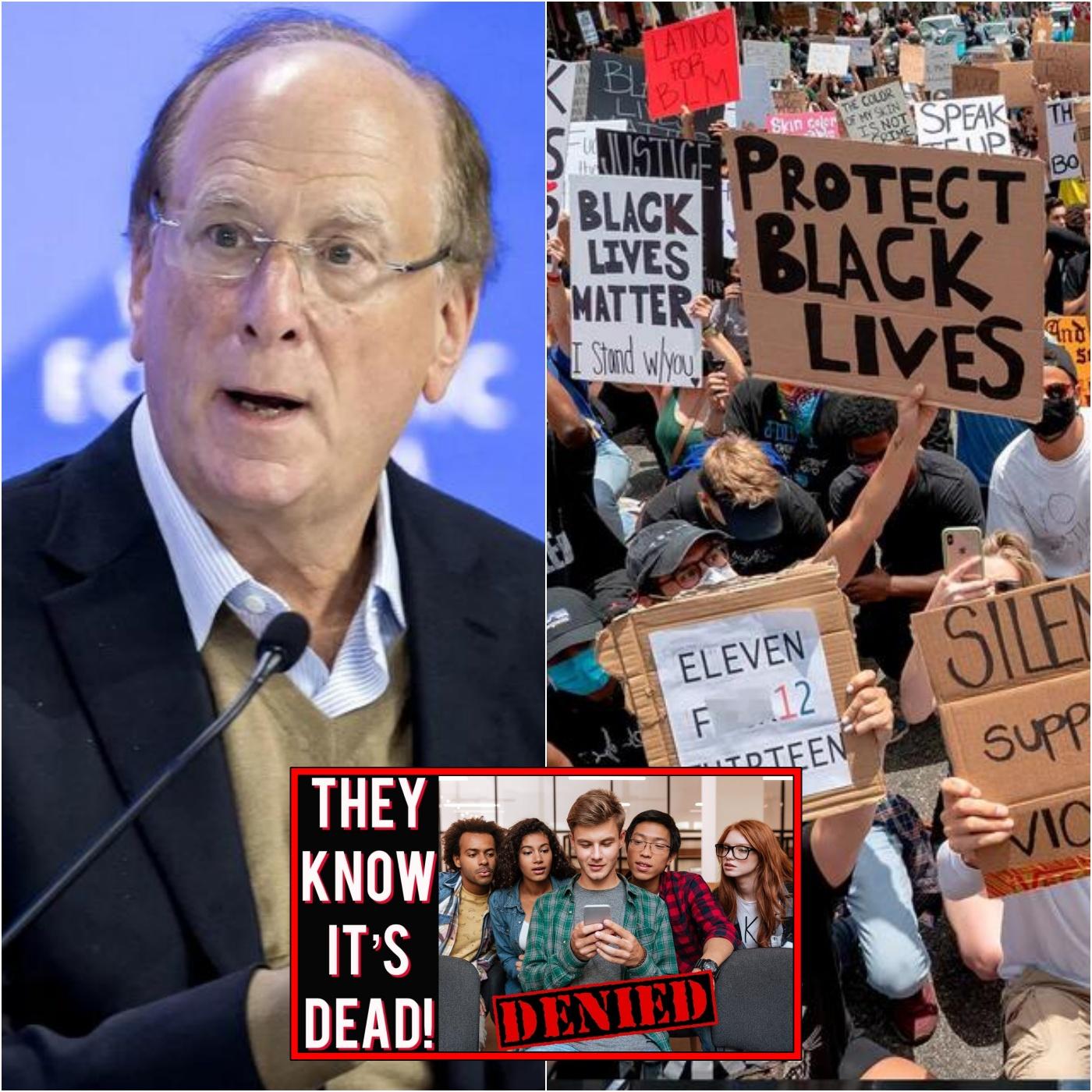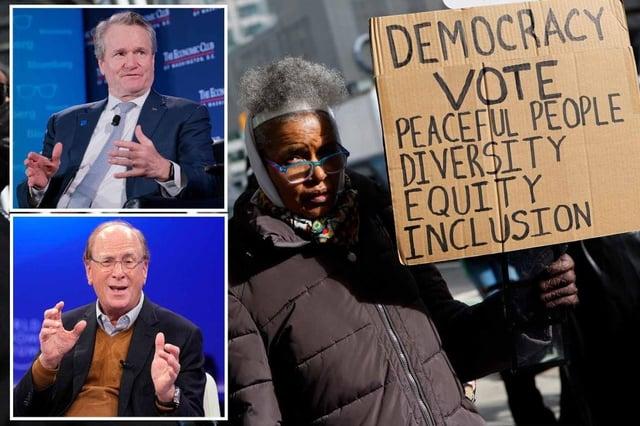How Gen Z’s Rejection of Woke Culture is Reshaping Hollywood and Sports
The entertainment and sports industries, once unassailable giants of cultural influence, are facing an unprecedented reckoning. A new generation of consumers—Generation Z, born roughly between 1997 and 2012—has emerged as a force powerful enough to disrupt decades-old business models. With their distinct values, digital fluency, and unapologetic demand for authenticity, Gen Z is compelling Hollywood, the NBA, and other entertainment sectors to rethink their approach or risk financial ruin. Reports circulating online, including a provocative YouTube video titled “Gen Z is BANKRUPTING everyone! Hollywood, sports, entertainment & more FORCED to drop WOKE or DIE!” published on July 15, 2025, claim that Gen Z’s rejection of overly politicized content is driving a seismic shift in these industries. But what’s really happening, and why is this generation’s influence so profound?

The claim that Gen Z is “bankrupting” Hollywood and sports stems from a growing sentiment that these industries have leaned too heavily into social justice messaging, often at the expense of entertainment value. A Time2play survey revealed that 33% of Gen Z respondents watch less NBA basketball due to its political messaging, including anthem protests, Black Lives Matter affiliations, and pride celebrations. Colin Cowherd, a Fox Sports Radio host, highlighted the NBA’s declining viewership, noting a 48% drop in ratings over the past 12 years. He argued that the league’s leftward shift has alienated “regular people” who simply want to enjoy sports without political overtones. This sentiment isn’t limited to sports. Hollywood, too, has faced backlash for integrating progressive ideals into films and award shows, with viewership plummeting as audiences tune out.
The NBA’s experience offers a clear case study. During the 2020 season, the league embraced social justice initiatives, painting “Black Lives Matter” on courts and allowing players to display activist messages on jerseys. While well-intentioned, these moves didn’t resonate with all fans. A 2021 Yahoo News/YouGov poll found that 34.5% of respondents watched less sports due to social justice messaging, while only 11% watched more. NBA Commissioner Adam Silver acknowledged this disconnect, announcing before the 2020-2021 season that the league would scale back on-court messaging. “My sense is there will be some sort of return to normalcy,” Silver told ESPN, emphasizing that fans want basketball, not politics. This pivot suggests the league recognizes the financial stakes of alienating its audience.
Hollywood faces a similar dilemma. The 2021 Oscars, heavily infused with political commentary, saw viewership drop to historic lows, with only 10.4 million tuning in compared to 57 million in 1998. Joe Concha, a media columnist for The Hill, criticized the ceremony’s tone, noting that speeches about police brutality and systemic racism turned off viewers seeking escapism. “When an awards show is indistinguishable from a congressional floor speech, most of the country will continue to say, ‘Thanks, but no thanks,’” Concha wrote. The Motion Picture Academy’s new “woke” standards for Best Picture, requiring specific diversity quotas, have further fueled perceptions that Hollywood prioritizes ideology over storytelling. Cineworld’s 2020 announcement to shutter Regal Cinema theaters indefinitely underscored the industry’s broader struggles, though factors like the pandemic also played a role.

Gen Z’s influence goes beyond rejecting politicized content. This generation, raised on TikTok, Instagram, and YouTube, craves fast-paced, authentic, and interactive experiences. Traditional formats—three-hour baseball games or predictable blockbuster films—often fail to hold their attention. A 2024 Woke Waves article reported a 28% drop in NBA viewership among Gen Z, attributing it to repetitive gameplay, load management (star players sitting out games), and a lack of on-court drama. “The regular season lacks intensity,” the article noted, quoting Mia, a 20-year-old from Los Angeles, who called the NBA All-Star Weekend “forced” and lacking the excitement of its heyday. Gen Z’s preference for short, engaging content has pushed the NBA to innovate, with initiatives like the NBA Cup and Isolation-Cam, which streams games from a single player’s perspective, gaining traction on social media.
The entertainment industry’s pivot to digital platforms reflects Gen Z’s consumption habits. The NBA boasts over 285 million social media followers, surpassing all other U.S. sports leagues combined, according to a 2023 Woke Waves report. Platforms like TikTok and Instagram offer highlight reels, player interactions, and behind-the-scenes content that resonate with Gen Z’s desire for accessibility and immediacy. David Brickley, CEO of STN Digital, which works with NBA players, emphasized that young stars like Tyrese Haliburton are “very attuned” to what’s trending online, using social media to connect authentically with fans. This digital fluency has helped the NBA maintain relevance, but it hasn’t fully offset the decline in traditional viewership, with the 2020 NBA Finals drawing just 5.6 million viewers compared to 37 million in 1998.
Hollywood, too, is grappling with Gen Z’s preference for instant gratification. Streaming services like Netflix and TikTok compete fiercely for attention, offering endless content tailored to short attention spans. The decline of cable TV, with audiences dropping from 112 million in 2014 to an estimated 56 million in 2024, has further fragmented viewership, according to NBA Commissioner Adam Silver. Meanwhile, Gen Z’s values—prioritizing inclusivity and authenticity without heavy-handed messaging—pose a challenge. Mark Kern, a games industry veteran, argued in a 2024 Fox News piece that ESG (Environmental, Social, Governance) funding has propped up “woke” entertainment despite audience backlash. “Gamers don’t mind inclusivity, but they wonder why it means killing off or deriding beloved characters,” Kern said, highlighting a disconnect between corporate agendas and fan expectations.

The financial implications are stark. A 2020 Western Journal report suggested the NBA faced billions in losses due to declining viewership, with potential salary cuts for players. Hollywood’s box office struggles are equally dire, with 2020 seeing a 54% drop in Boston Red Sox game ratings and the Oscars losing tens of millions of viewers. Yet, not all is lost. Some brands have thrived by aligning with Gen Z’s values without alienating broader audiences. A 2023 Rolling Stone article noted that companies like Nike and Disney, despite backlash for progressive campaigns, remain profitable by balancing inclusivity with broad appeal. Disney’s casting of Halle Bailey as Ariel in The Little Mermaid sparked controversy but also resonated with younger, diverse audiences, showing that inclusivity can work when it feels organic.
Sports leagues are adapting by leaning into interactivity and personalization. The NBA’s partnership with Twitter for Isolation-Cam, where fans vote on which player to follow, generated significant buzz, with SB Nation reporting enthusiastic fan engagement. Similarly, the rise of sports betting has drawn Gen Z into less prominent games, with a 2023 Athletic article quoting a 25-year-old Nets fan who began watching more matchups after gambling was legalized in New York. These innovations suggest that industries can regain Gen Z’s loyalty by meeting them where they are—online, engaged, and seeking experiences that feel personal.
The lesson for Hollywood and sports is clear: Gen Z wields immense cultural and economic power, and ignoring their preferences risks obsolescence. While the “go woke, go broke” mantra oversimplifies the issue, it captures a truth—fans want entertainment that prioritizes fun, authenticity, and engagement over preaching. As David Aldridge, a veteran NBA reporter for The Athletic, noted, young players today are “more in control of their own narrative,” reflecting Gen Z’s broader demand for agency. Whether it’s the NBA cutting back on political messaging or Hollywood rethinking its approach to storytelling, the industries that adapt to Gen Z’s digital, values-driven world will thrive. Those that don’t may indeed face the bankruptcy—cultural and financial—that Gen Z’s influence threatens to impose.





